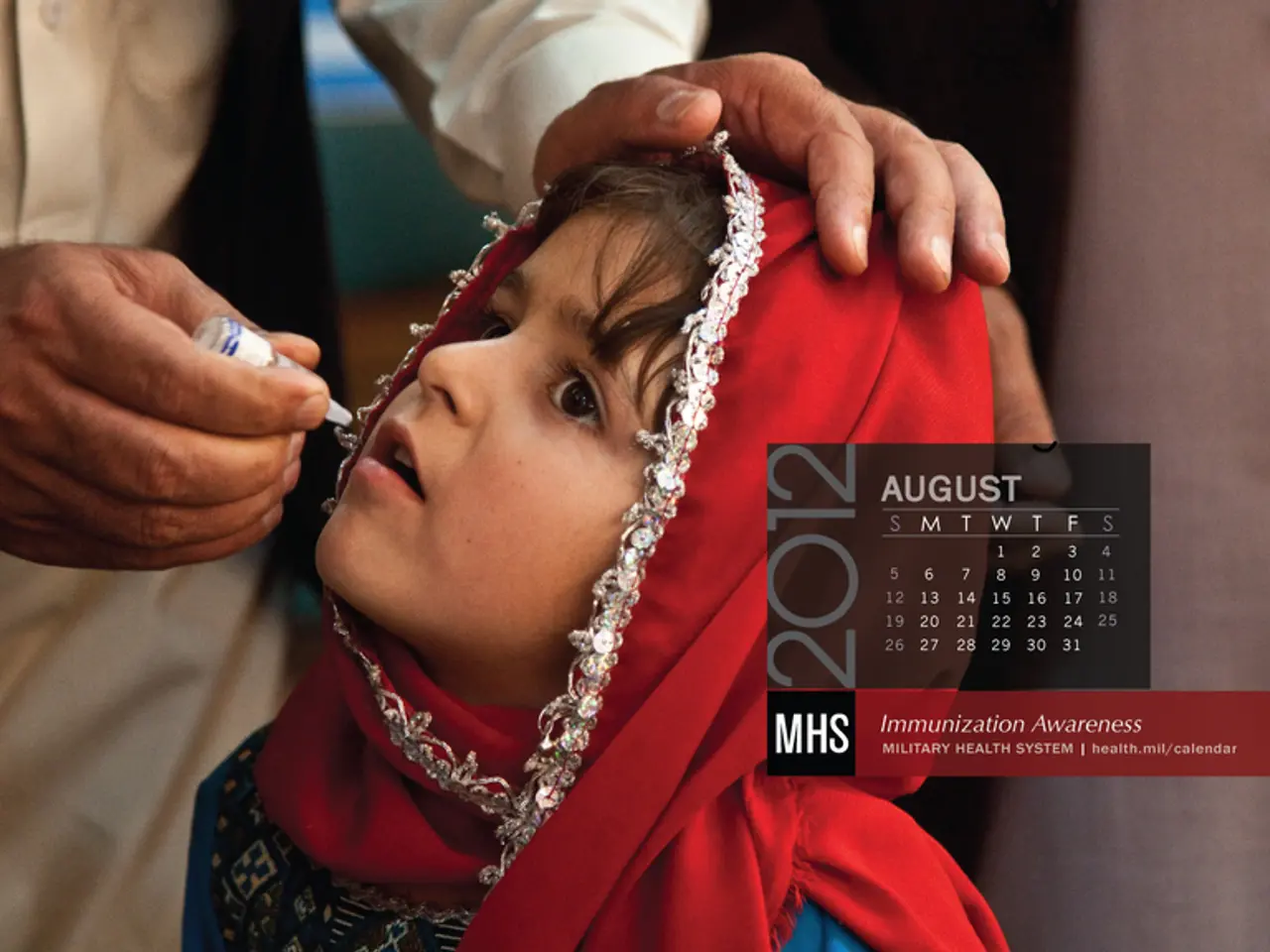Impact of Chemotherapy on COVID-19: Consequences, Risks, and Insights
Cancer patients, particularly those undergoing chemotherapy, are at a higher risk of developing severe symptoms from COVID-19 due to the immunosuppression caused by the disease and its treatment.
Chemotherapy weakens the immune system, making it harder for cancer patients to fight infections like COVID-19. Studies indicate that cancer patients undergoing treatment are more vulnerable to severe COVID-19 outcomes, including death and hospitalization. However, COVID-19 booster vaccinations have been shown to provide effective protection in reducing this risk.
Having cancer and COVID-19 can be life-threatening. Cancer treatment may need to be temporarily halted while a patient is receiving treatment for COVID-19 symptoms. If a person undergoing chemotherapy tests positive for COVID-19, they may need to stay indoors to avoid spreading the infection.
Childhood cancer survivors show a notably higher risk of severe COVID-19 compared to the general population and matched controls, despite often having a lower risk of contracting COVID-19 due to precautionary behaviors.
COVID-19 symptoms may include fever, tiredness, loss of taste, or diarrhea. Sepsis, a life-threatening response that the body produces when a person has an infection, is more likely to occur in those with cancer, lung disease, and a weakened immune system. Sepsis can cause increased heart rate, shortness of breath, shivering, and sweating.
In some cases, COVID-19 can progress to pneumonia and then to viral sepsis. Remdesivir, an antiviral medication, is suitable for people with cancer who have developed COVID-19 and are receiving hospital treatment. Steroids are recommended for individuals with cancer and COVID-19 who require oxygen supplementation.
Molnupiravir and Paxlovid are antiviral drugs available in pill form for people with cancer and COVID-19 who do not require hospital care. These drugs can help reduce the severity of COVID-19 symptoms and speed up recovery.
It's important to note that older adults may be more prone to developing infections, including COVID-19. Wearing a fitted mask indoors, opening windows, washing hands, staying home when feeling unwell, and keeping a minimum 1-meter distance from others can help limit the spread of SARS-CoV-2 and reduce the risk of developing COVID-19.
COVID-19 vaccinations may not be as effective if someone has blood cancer. However, booster vaccinations have been shown to enhance the defenses of cancer patients against severe COVID-19, despite potentially weaker vaccine responses.
People who develop chest pain, shortness of breath, or confusion may need immediate medical care. Delays in treatment and diagnostic tests may occur for children with COVID-19, and doctors may have to change their treatment plan. People with blood cancer may take a long time to recover from COVID-19.
In conclusion, cancer patients, especially those receiving chemotherapy, are at a heightened risk of severe COVID-19 symptoms. Booster vaccinations provide effective protection in reducing this risk. It's crucial for cancer patients to take extra precautions to avoid contracting COVID-19 and to seek immediate medical attention if symptoms arise.
- Cancer treatment, particularly chemotherapy, weakens the immune system, making cancer patients more susceptible to severe COVID-19 symptoms and complications, such as hospitalization and death.
- Studies suggest that even if cancer patients take precautions to prevent contracting COVID-19, they are still at a notably higher risk of developing severe COVID-19, especially those who are childhood cancer survivors.
- Healthcare professionals may need to forgo or delay cancer treatment while a patient is battling COVID-19 symptoms to ensure the patient's overall health and wellness.
- Along with having cancer, specific health-and-wellness conditions such as lung disease and a weakened immune system can further increase the risk of developing life-threatening conditions like sepsis and viral sepsis due to COVID-19.
- For cancer patients diagnosed with COVID-19 who do not require hospital care, antiviral drugs like Molnupiravir and Paxlovid can help manage the severity of symptoms and speed up recovery, while hospitalized cancer patients may benefit from Remdesivir and steroids.




